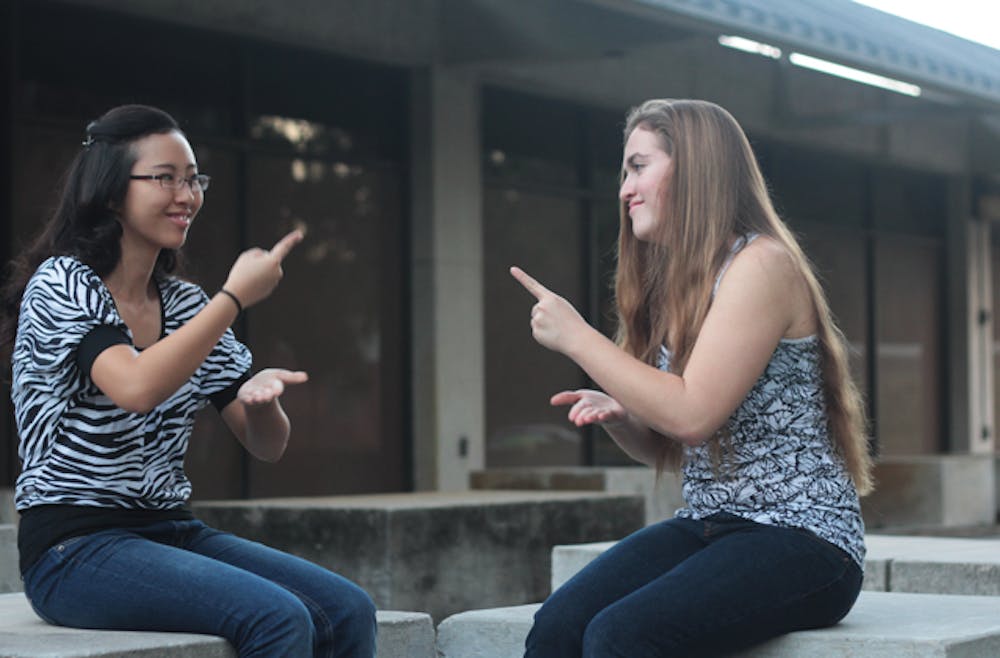In many ways, Joanna Byun is an average college freshman.
Byun, 19, lives on campus, hangs out with her friends and has dreams of changing the world.
But unlike most of her friends at UF, Byun needs an interpreter to help her understand her professors.
She is one of 30 hearing-impaired students registered with the Disability Resource Center this semester but only one of three who uses an interpreter.
Byun sometimes works with Signing Gators, the American Sign Language club on campus.
She's more of a helper than an official member, she said.
Mostly, she keeps the group updated on American Sign Language slang signs and awareness issues because, she said, "I'm obviously a deaf culture expert."
There are two kinds of people in the deaf community, Byun said.
There are deaf people with a lowercase "d," who might have a cochlear implant or a hearing aid and don't usually use interpreters.
"They hide their deafness," she said. "They don't want people to know."
There are also Deaf people with a capital "D," who, she said, use interpreters and sign language and are comfortable letting people know they are hearing-impaired.
"I'm a big ‘D,'" Byun said.
She uses three different interpreters to help her with her four classes at UF.
Byun lip-reads, but nobody can read lips and take notes at the same time, she said.
"I can't believe how much I miss just by looking down," she said.
In addition to her interpreters, who are paid by UF as required by the Americans with Disabilities Act, the Disability Resource Center provides a note-taker for Byun.
She said she's never had a problem with the resources provided by the Disability Resource Center.
The Individuals with Disabilities Education Act of 2004 established accommodations AT public schools for students with disabilities.
However, the act allows states to determine their own requirements for school interpreters.
Since then, 26 states have adopted the Educational Interpreter Performance Assessment, a standardized national interpreter certification.
The test has proved more difficult than many states' certifications, causing a shortage of interpreters in some areas.
Currently, Florida does not require interpreters to take the EIPA.
There's also no shortage of interpreters at UF, said Chanda McCann, a learning specialist in the Disability Resource Center.
UF gets interpreters from the Center for Independent Living, a nonprofit support center for people with disabilities.
"It's a pretty smooth process," McCann said.
There are four interpreters at UF this semester, said Kathy Elkins, ASL interpreting coordinator at the Center for Independent Living in Gainesville.
The average is three or four, depending on how many deaf students are enrolled. All of the staff and freelance interpreters at the Center for Independent Living are certified by the state of Florida, Elkins said.
Mike Tuccelli, who teaches ASL at UF, was a deaf student at UF in the 1990s.
The university was very accommodating to him then, he wrote in an email, but there are many more options for deaf students now.
UF even graduated a deaf medical student thanks to the support of the Disability Resource Center, he said.
Byun agreed that UF has been helpful.
She just wishes her professors would remember they're supposed to give a 15-minute break for the interpreters when a class lasts for more than one class period.
"They have to sign so fast," she said. "I see them stretching their hands. They're going to get arthritis!"
Joanna Byun, left, signs with her friend Laura Hogan. Byun is one of only three deaf students at UF who use classroom interpreters.






